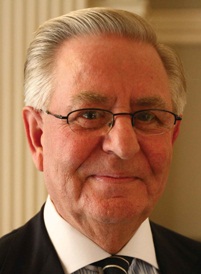
By Dr. Cesar Chelala
As 91 world leaders gathered in Soweto to pay homage to Nelson Mandela there was one notable absence: Benjamin Netanyahu. Netanyahu cited the high cost of his presence in South Africa to explain his absence. It is possible that both internal politics and what he perceives as past antagonism from Mandela are better reasons to explain his absence. Whatever the motive, they are both so inconsequential that only succeed in showing Netanyahu’s true colours.
According to the prime minister’s office, the trip to South Africa would have cost Israel less than $3m, which includes the cost of a private El Al plane plus transportation of security equipment and military and public relations personnel on an Israeli Air Force plane. This happens at the same time that it was revealed that close to $1m was spent in 2012 to maintain Netanyahu’s three residences: his official residence in Jerusalem, a private home in Caesarea and another one on Gaza Street in Jerusalem.
Because of Netanyahu’s decision not to travel and Shimon Peres having come down with the flu, Israel was represented by Yuli Edelstein, the speaker of the Knesset and five other Knesset members.
Although the stated reason for Netanyahu’s absence was the high cost of the trip, many see it as an effect of the historically complicated relationship between South Africa and Israel and Mandela’s unwavering support for Palestinians’ rights. However, much as Mandela supported Palestinians’ rights, he was also clear in endorsing Israel’s right to exist. As he stated during a visit to Israel in 1999, “I cannot conceive of Israel withdrawing if Arab states do not recognise Israel within secure borders.”
Even today Israel is branded an ‘apartheid’ country by some politicians in South Africa, who see the Palestinians as the equivalent of South African blacks. South African Jews rejected that labeling placed on Israel, stating that Israel is a democratic society and not an apartheid country.
However, many among them feel insulted by Netanyahu’s decision since South African Jews had been strong supporters of Israel and had contributed substantial amount of funds to ensure Israel’s survival and progress. As stated by Marlene Bethlehem, former national chair and national president of the South African Jewish Board of Deputies, “I also hope that South Africa does not interpret it in a bad way. Furthermore, if the decision is about money, then it is even more hurtful, since South African Jews have punched way above our weight for many years in giving to Israel.”
There may be other local political considerations in Netanyahu’s decision not to attend Mandela’s commemoration. Staying in Israel will allow him to oversee a pending bill at the Knesset that would allow Israeli authorities to jail African asylum seekers for up to a year without trial, as well as keeping them from finding gainful employment in Israel. In this regard, in November the Israeli cabinet approved a budget allocation of $126m to fund the provisions of that yet-unpassed bill, an amount several times higher than what would have cost Netanyahu to attend Mandela’s funeral.
Netanyahu’s decision will not gain him new friends among progressive elements in Israel. Writing in Haaretz Bradley Burston, its senior editor, stated, “In his eleventh-hour decision against attending the funeral of Nelson Mandela, Benjamin Netanyahu proved that he is not the smug, petty, vindictive, waffling, in-your-face insulting man he seems. He’s something worse.”
Dr. Cesar Chelala is a co-winner of an Overseas Press Club of America award.



